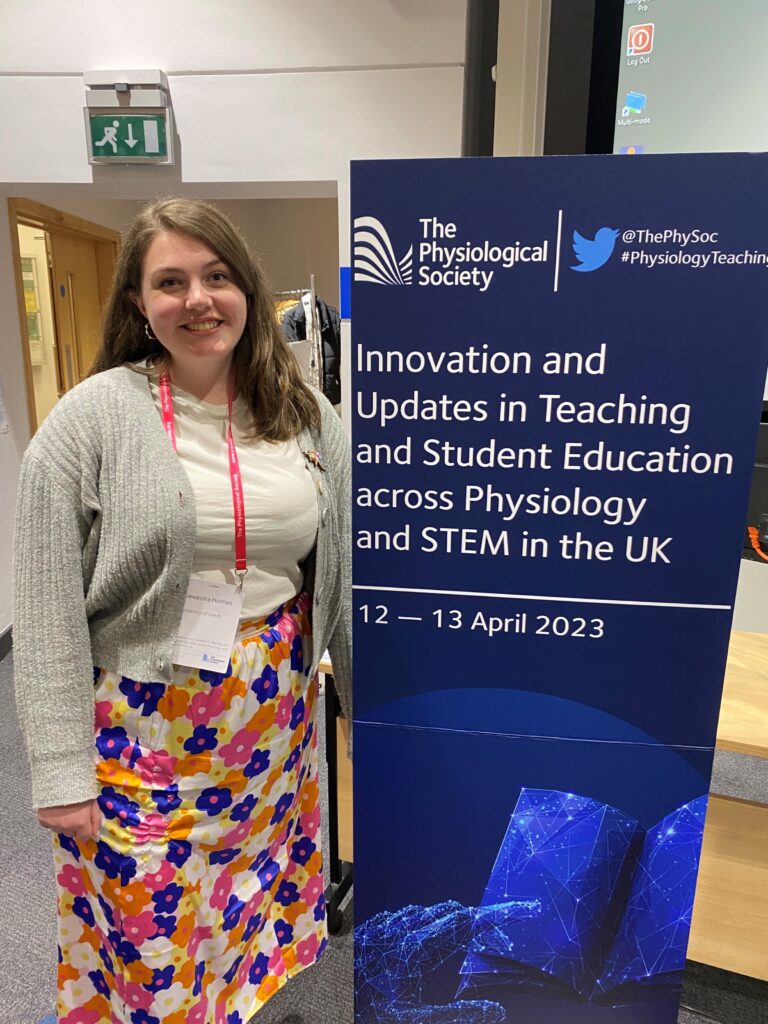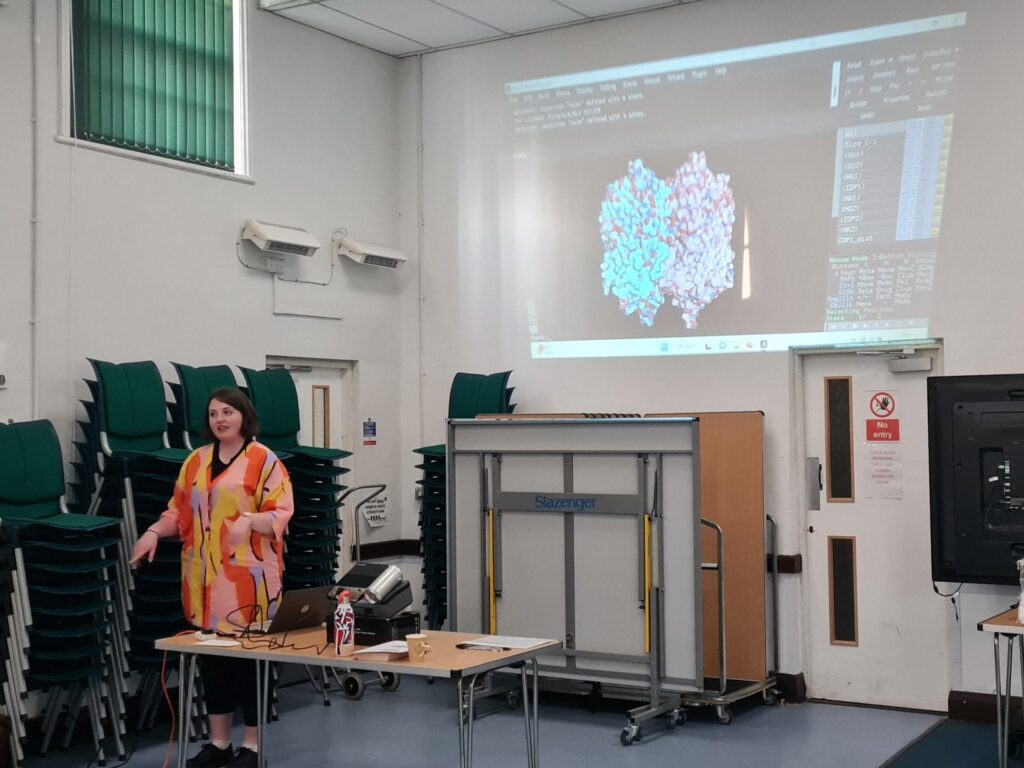Meet Alex: Alex started her PhD at the University of Leeds in 2018 and finished with her viva in December of 2022. We have asked Alex all about her career, as well as any advice that she has for current students considering a career in academia.

“My PhD project was all around investigating membrane proteins [namely membrane-integral pyrophosphatases and the mechanosensitive ion channel PIEZO1] and using computational and lab-based techniques to find out how they worked.” Now, Alex has the role of a teaching fellow at the University, leading practical sessions, workshops and lectures for students in Physiology!
As a number of our students are starting to think about life after their PhDs, we took the time to ask Alex, a White Rose DTP Alum, all about her career as Dr Holmes as well as any advice that she has for current students considering a career in academia.
Q. What are you doing now?
A. I’m now a Teaching Fellow in Physiology at the University of Leeds – just a move from one office to the other! This is essentially the role of a lecturer, but with only teaching and no research responsibilities. I design and deliver student education activities, from workshops to lectures to practical classes. I’m currently involved in a large-scale project called Curriculum Redefined, in which the teaching of the entire university is going to be changed and improved – starting from September 2023, so you could say I’ve hit the ground running!
Q. When did you start thinking about your career?
A. Honestly it’s hard to say, I think I’ve been thinking about my career the entire way through, from applying to PhDs through to actually getting this job and I’m sure I’ll be thinking about it for a while yet! I went back and forth a number of times around whether I wanted a research position, a science communication position, a teaching position or something else entirely. In fact, while for all of my friends it seemed to cement their plans, I think my 3 month PIPS placement was when I did the most flipflopping between all of my options!
“I love… getting to see that ‘lightbulb’ moment as something suddenly clicks“
In the end I took the best advice available to me – try as many things as you can and work out what you like and what you’re good at. About 6 months before I submitted my thesis I was pretty certain that teaching and scholarship was what I wanted to do, and so the job application process began – a lot of work but so worth it for where I am now!
Q. What do you most enjoy about being a teaching fellow?
A. I love getting to teach and interact with students every day, whether that’s through lectures and them asking questions, or smaller group sessions and getting to see that “lightbulb” moment as something suddenly clicks or they make a connection with something else they’ve learnt.

I also enjoy getting to work in the team that I do. In comparison to the research landscape, everyone seems so much more collaborative and supportive – perhaps not having to fight for money, lab space or publications is the root cause of this! I still get to have team meetings and catch up with research projects, but they’re all teaching based and everyone is willing to offer advice and hear out your ideas.
Q. How did your PhD and the White Rose DTP prepare you for what you are doing now?
A. There are a couple obvious ways, and a couple not-so-obvious ways. Firstly, I’m a subject expert, so for a lot of the content I have to teach I have a pretty good understanding of what’s going on and can provide the right level of detail. Secondly – blimey, I did a lot of presentations during my PhD, so standing up in front of 200+ first year undergraduate students trying to convince them that hypothyroidism is a fun topic isn’t even in my top 10 worst scenarios! The less obvious ways, are that I did a lot of admin and organising work during my PhD, from organising the lab meetings, booking rooms, planning experiments etc, and that’s set me up really well to do things like timetabling requests, planning modules and developing activities.
“There’s no point going into a career you won’t enjoy…“
I would say though, is that a huge amount of the preparation came from things that were indirectly thanks to my PhD, from having the time to do Public Engagement, or getting to be a postgraduate demonstrator, or supervising undergraduate students. I think focusing on solely the science aspects is doing yourself a huge disservice when it comes to your career – even if you want to continue in academic research.
Q. What advice would you give to current students who are thinking about and planning their graduate careers?
A. Focus on 3 things: what you like; what you’re good at; what you’re not so good at. There’s no point going into a career you won’t enjoy, so if something isn’t for you rule it out early. Work out what you’re good at, and then work out what evidence you have for it. Work out what you’re not so good at, and use this opportunity where you’re supported and in a training programme to develop those skills – there’s literally no better time to.
